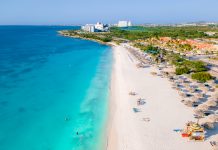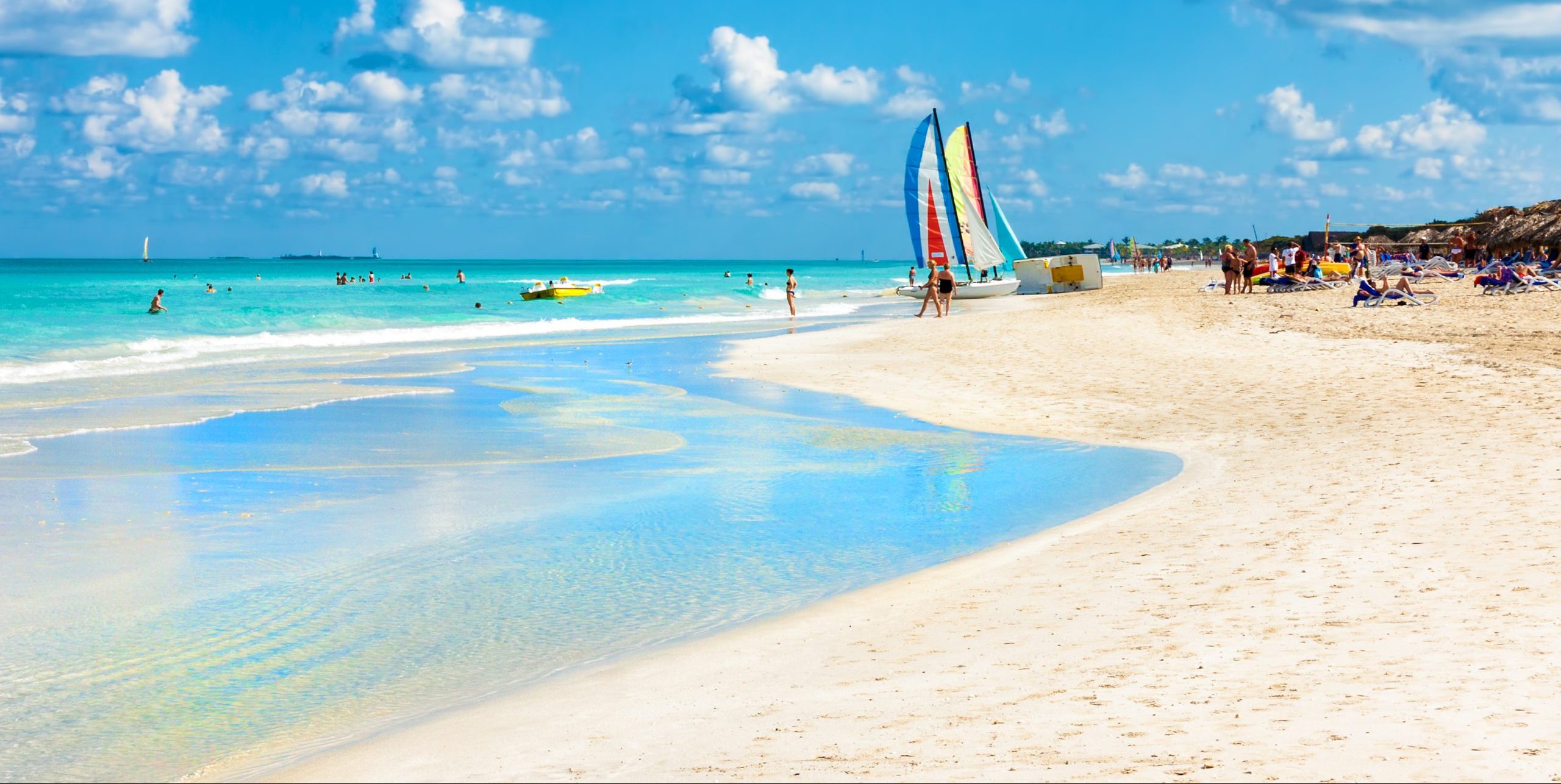The resounding answer to the question “Does Cuba have internet?” is a resounding yes! While internet access may not be as ubiquitous or lightning-fast as in many other parts of the world, Cuba has undoubtedly made significant strides in this domain. Gone are the days when the internet was a privilege exclusively reserved for tourists; today, Cubans can largely access the web as they would in any other country, albeit with some limitations in terms of cost and availability of access points.
Despite the presence of some internet censorship, primarily focused on political content critical of the government, the average traveler to Cuba is unlikely to encounter significant barriers. With a reliable Virtual Private Network (VPN) like NordVPN, you can seamlessly navigate the web, access various websites, and enjoy a secure browsing experience.
Connecting to Cuba’s Internet Hotspots
For both locals and visitors alike, public Wi-Fi hotspots have emerged as the primary means of accessing the internet in Cuba. While hotels and private accommodations like Airbnbs increasingly offer internet connectivity, these public hotspots remain the most prevalent option.
Strategically located in parks, plazas, and other gathering spots like the iconic Malecón in Havana, these Wi-Fi zones have become digital oases where people congregate, devices in hand, to stay connected. If you find yourself surrounded by a sea of people engrossed in their screens, chances are you’ve stumbled upon one of these hotspots.
To access these public networks, you’ll need to purchase an internet card, known as a NAUTA card, from ETECSA, Cuba’s state-owned telecommunications company. These cards, adorned with scratch-off codes on the back, grant you a specific amount of internet time, typically an hour per card.
Navigating Havana’s Digital Landscape
As Cuba’s capital and cultural epicenter, Havana undoubtedly boasts the most extensive internet connectivity in the country. Public Wi-Fi points are scattered throughout the city, complemented by numerous hotels and guesthouses that offer Wi-Fi access to their guests.
Furthermore, private accommodations like apartment rentals and Airbnbs have begun to provide their own Wi-Fi networks, catering to the growing demand for seamless connectivity. Some neighborhoods are even piloting programs for open internet access, further solidifying Havana’s position as a digital trailblazer within Cuba.
Acquiring Cuba’s Internet Access Cards
To connect to public Wi-Fi hotspots, internet parks, or even hotel lobbies and bars, you’ll need to purchase an internet access card. These NAUTA cards, issued by ETECSA, feature a scratch-off section on the back that reveals a numerical code. Simply open your internet browser, navigate to the designated website, and enter this code to gain internet access for the allotted time.
While ETECSA stores remain the primary source for purchasing these cards, you’ll also find individuals reselling them at a slight markup, often near Wi-Fi hotspots or internet parks. Inquire with your accommodation host or hotel staff for the nearest ETECSA location or resellers, as they’ll likely have multiple options to share.
Embracing Cuba’s Internet Cafés (or Lack Thereof)
While the concept of internet cafés may be familiar in many parts of the world, Cuba has largely bypassed this model. Instead of dedicated internet cafés, most Cubans and visitors opt to connect their devices directly to Wi-Fi hotspots or private networks in homes or businesses.
Staying Safe Online with a VPN
Traveling to Cuba without a reliable Virtual Private Network (VPN) is akin to embarking on an adventure without a trusty map. Using a VPN is an essential measure to safeguard your personal information from potential hackers and trackers, especially when connecting to unfamiliar public Wi-Fi networks – your only option in Cuba.
We’ve been using NordVPN for years, and we couldn’t recommend it more highly. This top-tier VPN not only encrypts your data, ensuring your online safety, but also allows you to set your browsing location to dozens of different countries. This feature is particularly useful in Cuba, as it enables you to access websites and services that might otherwise be restricted due to the long-standing U.S. economic blockade and sanctions against the island’s banking sector.
Exploring Data Roaming Options in Cuba
For travelers from the United States with AT&T, Verizon, or Sprint cell phone service, data roaming in Cuba is now a viable option for internet access. However, it’s essential to note that roaming data in Cuba can be slow and costly, making it an impractical choice for your sole means of connectivity.
Instead, we recommend dedicating specific time slots during your day to connect to Wi-Fi hotspots using ETECSA internet cards. This approach not only ensures faster internet speeds but also proves to be more cost-effective in the long run.
Cuba’s SIM Card Solution: The Tourist SIM Card
Recognizing the need for mobile internet access among visitors, Cuba’s phone carrier, Cubacel, introduced a game-changing “Tourist SIM Card” program in February 2020. This innovative solution allows travelers to pre-order a 30-day SIM card with 1GB of data, which can be picked up upon arrival at the Havana airport.
Priced at $26, the CubaCel Tourist SIM Card offers a convenient option for those seeking mobile data access during their Cuban adventures. Additional data can be added for an extra charge, making this an attractive choice for travelers looking to stay connected on the go.
Embracing the Cuban Internet Experience
While internet accessibility in Cuba continues to improve, it’s important to remember that it may not be as readily available as you’re accustomed to. We recommend embracing a mindset of preparedness, as if you’ll have limited Wi-Fi access, and then pleasantly surprising yourself when connectivity is available.
To ensure a seamless digital experience, we suggest downloading essential apps, banking applications, and mapping tools like Maps.Me before your trip. Additionally, take screenshots of important information, such as hotel addresses, contact numbers, or travel itineraries, to have them readily accessible even without an internet connection.
Conclusion
Cuba’s internet landscape has undergone a remarkable transformation, evolving from a digital desert to a connected oasis. While challenges persist, the island nation is steadily bridging the digital divide, offering both locals and visitors alike the opportunity to stay connected.
By arming yourself with knowledge about navigating Cuba’s internet intricacies, investing in a reliable VPN like NordVPN, and embracing a mindset of flexibility, you’ll be well-prepared to navigate the island’s evolving digital landscape like a seasoned pro.
Remember, even amidst the allure of connectivity, Cuba’s true charm lies in its ability to transport you to a world where disconnecting from the digital realm becomes a cherished experience. Embrace the moments of digital solitude, for they offer a rare opportunity to immerse yourself fully in the vibrant culture, rich history, and warm hospitality that define this captivating island nation.
—
Be sure to tag us in your photos and videos @resortcaribbean, and follow our socials: Instagram, Facebook, YouTube.






![What You Need to Know before Visiting Azul Beach Resort Negril Jamaica Gourmet All-Inclusive [Resort Review] Azul Beach Resort Pool](https://resortcaribbean.co/wp-content/uploads/2021/09/20210828_091210-2-100x70.jpg)

![Visiting Ocean Coral Spring – One of Jamaica’s Most Famous Resorts [Resort Review] Visiting Ocean Coral Spring - One of Jamaica's Most Famous Resorts](https://resortcaribbean.co/wp-content/uploads/2021/11/20211106_155809-scaled-e1716408051807-100x70.jpg)